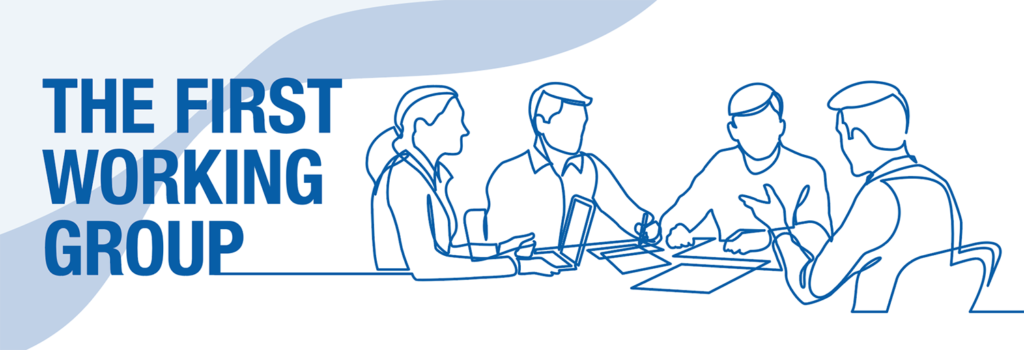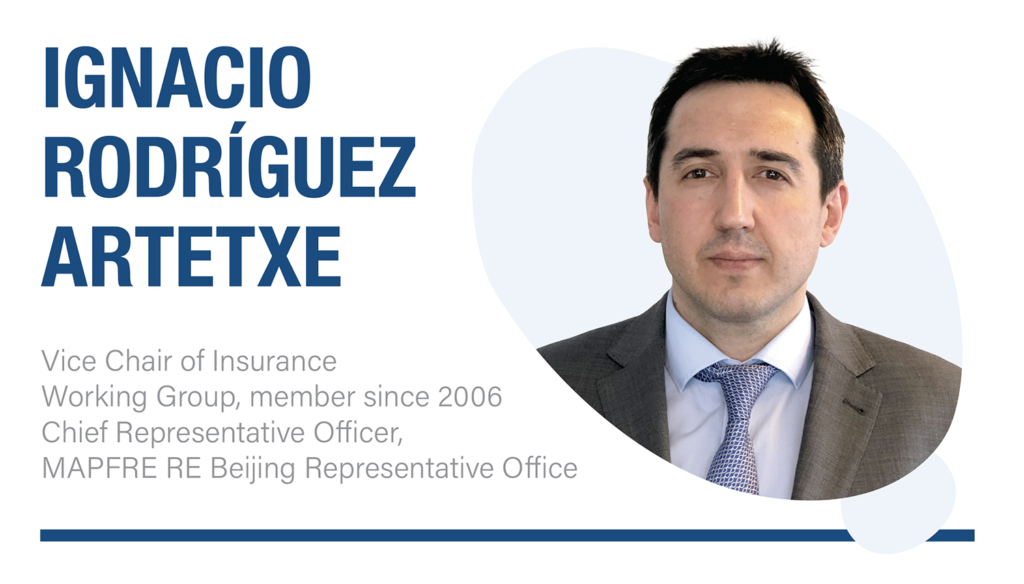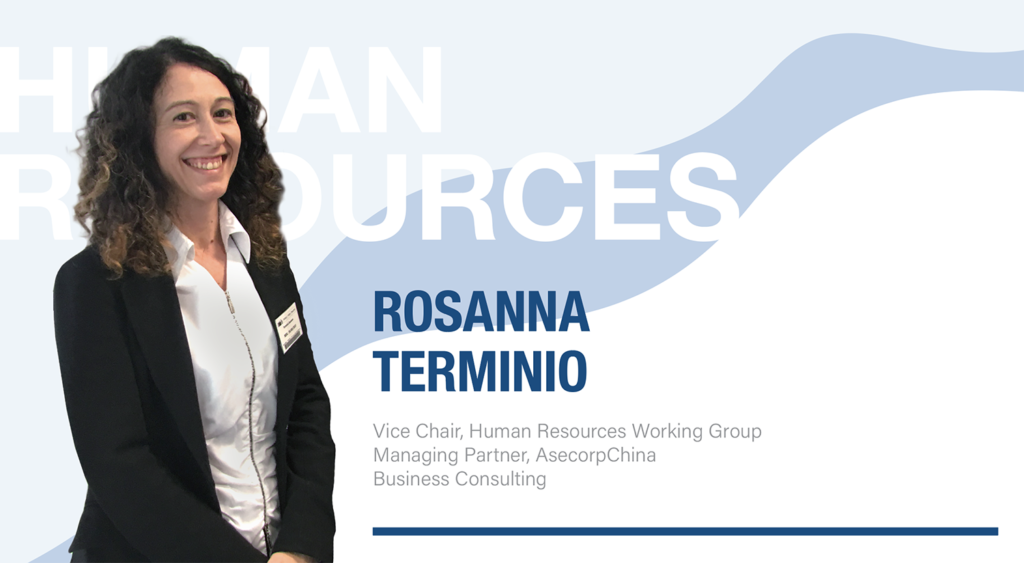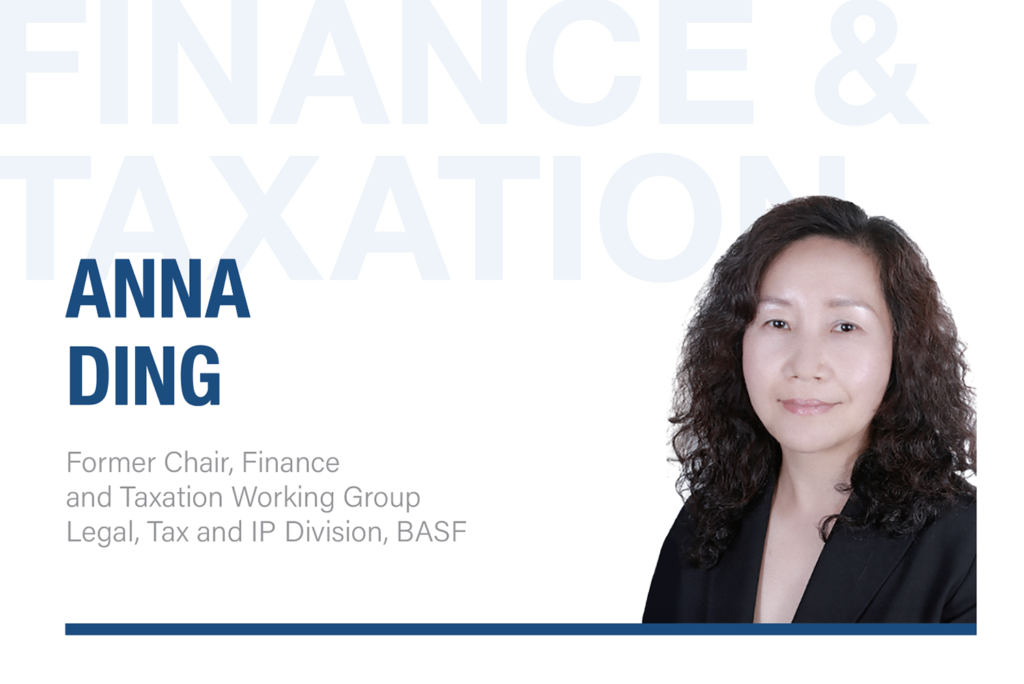
Working Group testimonials
The Insurance Working Group was the first of the European Chamber’s working groups to be set up, thanks mainly to the efforts of Carl-Ludwig Doerwald, who acted as chair for the first three years. The Insurance Working Group has since been a major force in the European Chamber’s advocacy activities, as many market access barriers to the industry still remain.
Here is the background to the insurance industry in China when the working group was founded, as described in the first European Business in China Position Paper:
“Shanghai was opened to foreign insurance companies in 1992. By the end of 2000, 32 insurance companies were in existence; this included 19 foreign-invested insurance companies. There are also 43 insurance agencies, eight insurance brokers and three insurance loss adjusters.
“Furthermore, by the end of 2000, 115 foreign insurance companies had established 200 representative offices in China, which are not permitted to conduct business.”
Alongside the Insurance Working Group, the European Chamber’s first Position Paper featured 15 others; on our 20th anniversary, we now have 30 working groups, eight fora, 10 desks and one task force.

Ignacio Rodríguez Artetxe
What’s your best memory of the European Chamber?
IRA: I used to enjoy the heated debates during the early years of the working group. But my best experience was the successful communication and execution that we at the Insurance Working Group (in good communication with the Banking Working Group and other chambers) were able to carry out when addressing a very important issue with a Beijing local authority.
What’s the difference between China’s business/regulatory environment in your industry today vs. 20 years ago?
There are things that have changed and others not quite so. The industry is more open now than 20 years ago, although some operational difficulties still remain. However, 15-20 years ago, there was a lot of interest from foreign insurers to come into the Chinese market and establish operations. I don’t see that eagerness nowadays.
How do you expect to see China’s business/regulatory environment change in the next 20 years?
I expect it to continue evolving in a positive way from a regulatory point of view, with more opening-up policies coming in place and tighter control from the regulators across the different industries regarding important issues such as environmental protection, clean energy, risk management, digitalisation, data, and so on. I also think China needs to come up with a new wave of attractive policies and incentives in order to reactivate or reinvigorate the interest of foreign investors and their will to establish operations in China. Foreign investment has been a key driver of China´s economic success and it needs to be further supported.
What role do you expect the European Chamber to take in the next 20 years?
I expect the European Chamber to continue conducting proactive and fair advocacy activities to defend the interests of its members. In this respect, I would like to emphasise the importance of maintaining a proactive attitude, leveraging on the different channels and relations that have been built over the years, and requesting the support of other European Union (EU) institutions (for example the EU Delegation) for those issues of special importance for the EU community in China.
What value has the European Chamber brought to you/your company/your industry?
We are very grateful to have been an active member of the European Chamber since 2006. The European Chamber has always supported us and important things have been achieved throughout these years. The Chamber is an important platform when it comes to addressing a variety of different issues with the Chinese authorities. It is also a great information channel for keeping up-to-date on developments.
Do you feel that the Chinese authorities care about the Chamber’s messaging and recommendations?
I do think they care, however, I feel that we need to be more proactive and we more on top of the key issues that come up from time to time in this evolving environment; thoroughly preparing things in advance, conducting a thoughtful execution and a timely follow-up.

Rosanna Terminio
How long have you been involved with the European Chamber?
RT: I have been involved with the European Chamber since 2011; at that time, my involvement was simply attending events and networking opportunities. In 2014, I started to become more involved in various working groups. As a personal challenge, I decided to run for the position of vice chair of the Human Resources Working Group but was not elected. This motivated me to be a more active member of the working group and the European Chamber community. In 2016, I was elected as vice chair for the first time.
What is your favourite experience with the European Chamber?
As a vice chair of the Human Resources Working Group, I had the chance to join the yearly tour in Brussels where the Position Paper and the requests of European Union (EU) companies in China are presented to the various commissions in Brussels. It is my favourite memory for two reasons. First, it was the first time that a representative of the Human Resources Working Group joined the EU Tour, I am personally proud of this. In Brussels, the EU Tour from China is special, not only for the EU Commission but also for all the community in Brussels (think tanks, organisation, Chinese embassy, universities, among others) revolving around EU-China relations. So, several other events and seminars are organised in the city and the press conference on the Position Paper is anticipated with a lot of curiosity and interest. It really feels like it is an important yearly appointment for the community in Brussels, which makes it even more worthwhile to work on the Position Paper.
Second, it was my dream as a student to work for the EU Commission. Finally, I followed another more international path, which I am happy about, but I always had the desire to see the EU from the inside. For good and for bad, it was for me an amazing journey. I am a convinced Europeanist.
What memories do you have from the first time you took part in the drafting of a Position Paper?
I joined as a volunteer to support the draft of changes to advocate for improving visa application procedures, especially to clarify the requirements for working visas. It was not easy to collect all official evidence necessary to support our statements, especially because all are in Chinese. Since then, the Chinese team in my own company always joins in to support this pro-bono activity.

Anna Ding
How have you seen the European Chamber’s advocacy efforts shape the taxation discourse in China over time?
The European Chamber conducts regular advocacy activities and meetings with the Chinese Government, providing an important communicational channel between the government and Chamber members. The Chinese Government values the Chamber’s input. For example, in 2014, State Council Notice No.62 stated that local authorities can cancel without prior notice pre-existing agreements they already approved, unless [the agreement was] specifically approved by the central government. The European Chamber submitted an advocacy letter to the Ministry of Finance to outline members’ concerns about the implementation of the Notice, including it potentially having a detrimental impact on business activities in China due to the lack of clarity for both public and private stakeholders. In August 2017, the State Council issued Notice No. 39: Several Measures for Promoting Foreign Investment, with the aim of improving the business environment for foreign investors in China. Notice No. 39 outlines 22 specific measures to help achieve this goal. One of the more rigorous measures is requesting local governments at various levels to strictly honour the commitments they have made to investors and foreign-invested enterprises, and earnestly fulfill the contracts they have entered into in accordance with the law.
Do you remember the European Chamber’s first government meeting you attended, who it was with and how you were received?
The first government meeting I attended was with Jörg Wuttke, president of the European Chamber, and Wang Li, deputy commissioner of the State Taxation Administration (STA). The meeting was held in Beijing in November 2009. I remember that Deputy Commissioner Wang Li said that upon receiving the meeting request from the European Chamber, they immediately started to invite the leaders of relevant departments and tried to give satisfactory answers to the questions raised in the Position Paper. He joked that they sometimes directly copy the ideas proposed in our position papers and pasted them into the tax regulations. At the end of the meeting, Deputy Commissioner Wang Li reiterated that the STA was interested in having an open discussion and information-exchange session with the European Chamber delegation.
What memories do you have about from the first time you took part in the drafting of a Position Paper?
The first time I took part in drafting a Position Paper was around 2008. I clearly remember an internal discussion meeting attended by four drafters, and Simon Tam was the chair of the Shanghai Finance and Taxation Working Group at that time. He explained the three-part structure requirement for the position paper – the first part, ‘Concern’ provides a brief analysis on the current issue (what), and the second part ‘Assessment’ gives some initial assessment (why) about the cause of the issue and, eventually, makes recommendations on potential resolutions (how) in ‘Recommendation’. It usually takes about three to six months to prepare a position paper. I spent a lot of time researching the topic, discussing with relevant colleagues, and polishing my drafts in order to accurately convey the problems, make analyses based on sufficient and reasonable evidence, and propose constructive recommendations.
The position paper is written on behalf of companies in the European Chamber, so it is important to not only understand the provisions of China’s tax law, but also compare them with European tax frameworks and international practices. For example, regarding the Dividend Withholding Tax issue, we wrote that in some European countries, there is no opportunity to receive a tax credit on foreign withholding tax. A withholding tax of 10 per cent on dividends, therefore, becomes an additional tax burden that can have a big impact. The amendment of a double taxation treaty between China and European countries can help to reduce such a burden. This proposal has been adopted in some new double taxation treaties (e.g., the treaty between China and Germany signed on 28th March 2014).


Recent Comments